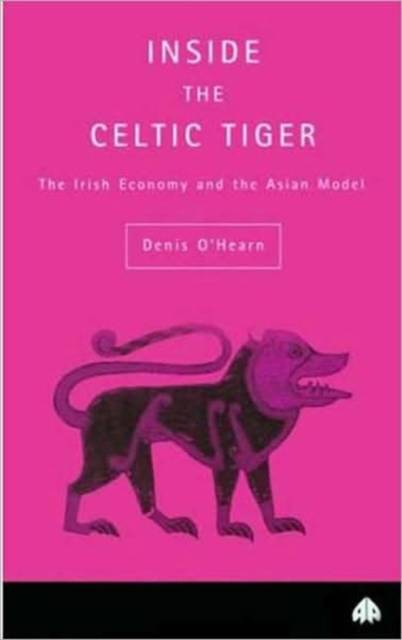
- Afhalen na 1 uur in een winkel met voorraad
- Gratis thuislevering in België vanaf € 30
- Ruim aanbod met 7 miljoen producten
- Afhalen na 1 uur in een winkel met voorraad
- Gratis thuislevering in België vanaf € 30
- Ruim aanbod met 7 miljoen producten
Zoeken
€ 59,95
+ 119 punten
Omschrijving
One of the poorest states in the European Union during the 1980s, the Republic of Ireland's economy has grown rapidly in the 1990s, despite an overwhelming dependence on foreign capital. Echoing the 'tiger' economies of East Asia, this has led many to dub Ireland the Celtic Tiger. In this original critique by one of Ireland's leading writers on economics, Denis O'Hearn sets Ireland's economic success in an international context and contrasts and compares its growth with the other 'tiger' economies. O'Hearn addresses some difficult but crucial questions, such as whether Ireland's apparent success is self-sustaining and what lessons can be learned from the downturn of the comparable East Asian economies. The study focuses on the importance for Ireland's rising economy of three US-led industrial sectors: computers, electrical engineering and pharmaceuticals. O'Hearn assesses who benefits and who loses from such foreign capital-led growth - in the context of working conditions, poverty, consumption and inequality - and argues that the country's apparently significant economic achievements are dominated by growth in corporate profits and professional incomes, but that there is no evidence, as yet, of 'trickle-down' to other sectors.
Specificaties
Betrokkenen
- Auteur(s):
- Uitgeverij:
Inhoud
- Aantal bladzijden:
- 216
- Taal:
- Engels
- Reeks:
Eigenschappen
- Productcode (EAN):
- 9780745312835
- Verschijningsdatum:
- 20/07/1998
- Uitvoering:
- Paperback
- Formaat:
- Trade paperback (VS)
- Afmetingen:
- 140 mm x 216 mm
- Gewicht:
- 281 g

Alleen bij Standaard Boekhandel
+ 119 punten op je klantenkaart van Standaard Boekhandel
Beoordelingen
We publiceren alleen reviews die voldoen aan de voorwaarden voor reviews. Bekijk onze voorwaarden voor reviews.











